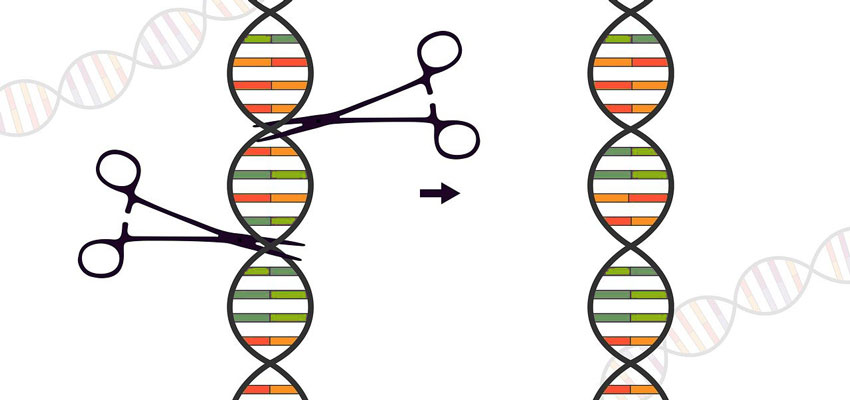The European agricultural lobbyists received their Christmas present already in November. The European Food Safety Authority EFSA came to the conclusion that new genetic engineering methods such as CRISPR/Cas do not pose greater dangers than the "classic" plant breeding methods.
Does this mean that there is now a free rein for the gene surgeons?
That is not yet clear. It only means, first of all, that EFSA believes that the existing guidelines for the approval of genetically modified organisms do not need to be fundamentally revised and will also apply to GMOs that are produced using one of the new genome editing methods. This includes the CRISPR/Cas9 method mentioned above, in which mutations are created or certain genes can be switched off by a targeted cut in the DNA molecule by the cell's subsequent repair mechanism. A further development of this SDN-1 method allows the cutting out of small gene sequences and possibly also their exchange (SDN-2, ODM).
Genetic manipulations that have been common up to now, where foreign DNA was introduced into the plant genome, e.g. herbicide resistance, fall under the SDN-3 category, which EFSA did not consider in the current study.
Experts warn of possible risks
But even after the EFSA's declaration of no objection, experts continue to warn of possible risks of the new techniques, which in their opinion could not be convincingly eliminated. These include renowned institutes such as the Norwegian Centre for Biosafety GenØk, the Austrian Federal Environment Agency and other critical scientific associations such as ENSSER (European Network of Scientists for Social and Environmental Responsibility) and Testbiotech (Institute for Independent Impact Assessment in Biotechnology).
One criticism is that already identified negative effects were not given due consideration in the EFSA meta-study and studies that came to less optimistic conclusions were not evaluated. Another fundamental criticism is that the EU Commission's mandate to the EFSA was insufficiently formulated, with the result that important aspects for the assessment of new genetic engineering (NGT) were not included in the study.
It should be emphasized that the EU Commission classifies plants produced with the help of NGT as genetically modified organisms. Furthermore, it hast to be mentioned that standardized analytical detection methods for SDN-1 manipulations are currently not yet available and therefore it is not possible to distinguish between mutations obtained by CRISPR/Cas9 or classical breeding.
GMO analysis
Our AGROLAB food and feed experts will be happy to provide you with detailed information on the current possibilities of GMO analysis. (FM)
Find more Information here:
Author: Dr. Frank Mörsberger

 Contact
Contact

 Contact
Contact Career
Career